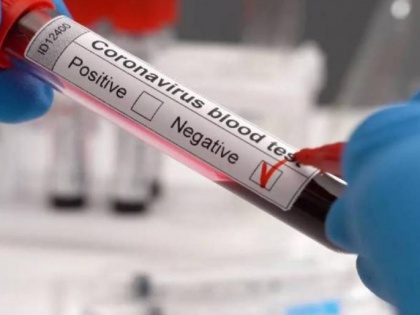Researchers develop novel chip for Covid-19 testing which delivers results in 55 minutes
By Lokmat English Desk | Published: February 26, 2021 08:26 PM2021-02-26T20:26:48+5:302021-02-26T20:30:48+5:30
Scientists have developed a stamp-sized chip that simplifies Covid-19 testing, and delivers results on a smartphone in less than ...

Researchers develop novel chip for Covid-19 testing which delivers results in 55 minutes
Scientists have developed a stamp-sized chip that simplifies Covid-19 testing, and delivers results on a smartphone in less than 55 minutes. The microfluidic chip developed by researchers from Rice University in the US measures the concentration of SARS-CoV-2 nucleocapsid (N) protein, a biomarker for Covid-19, in blood serum from a standard finger prick. According to the research published in the journal ACS Sensors, the nanobeads bind to SARS-CoV-2 N protein in the chip and transport it to an electrochemical sensor that detects minute amounts of the biomarker. The researchers noted that their process simplifies sample handling compared to swab-based PCR tests that are widely used to diagnose Covid-19 and need to be analysed in a laboratory. "What's great about this device is that it doesn't require a laboratory, said Rice lab of mechanical engineer Peter Lillehoj. "You can perform the entire test and generate the results at the collection site, health clinic or even a pharmacy. The entire system is easily transportable and easy to use," he said in a statement.
The team, including Rice graduate student and lead author Jiran Li, took advantage of existing biosensing tools to develop simple diagnostics, like a microneedle patch introduced last year to diagnose malaria. The new tool relies on a slightly more complex detection scheme but delivers accurate, quantitative results in a short amount of time. To test the device, the resaerchers relied on donated serum samples from people who were healthy and others who were Covid-19-positive.They said a longer incubation yields more accurate results when using the whole serum. The team found that 55 minutes was an optimum amount of time for the microchip to sense SARS-CoV-2 N protein at concentrations as low as 50 picograms (billionths of a gram) per millilitre in whole serum. The microchip could detect N protein in even lower concentrations, at 10 picograms per milliliter, in only 25 minutes by diluting the serum fivefold. Paired with a Google Pixel 2 phone and a plug-in potentiostat -- a device that controls voltage and measures resulting current it was able to deliver a positive diagnosis with a concentration as low as 230 picograms for whole serum. "There are standard procedures to modify the beads with an antibody that targets a particular biomarker," Lillehoj said. "When you combine them with a sample containing the biomarker, in this case, SARS-CoV-2 N protein, they bond together," he added. A capillary tube is used to deliver the sample to the chip, which is then placed on a magnet that pulls the beads towards an electrochemical sensor coated with capture antibodies. The beads bind to the capture antibodies and generate a current proportional to the concentration of the biomarker in the sample. The potentiostat reads that current and sends a signal to its phone app.
Open in app